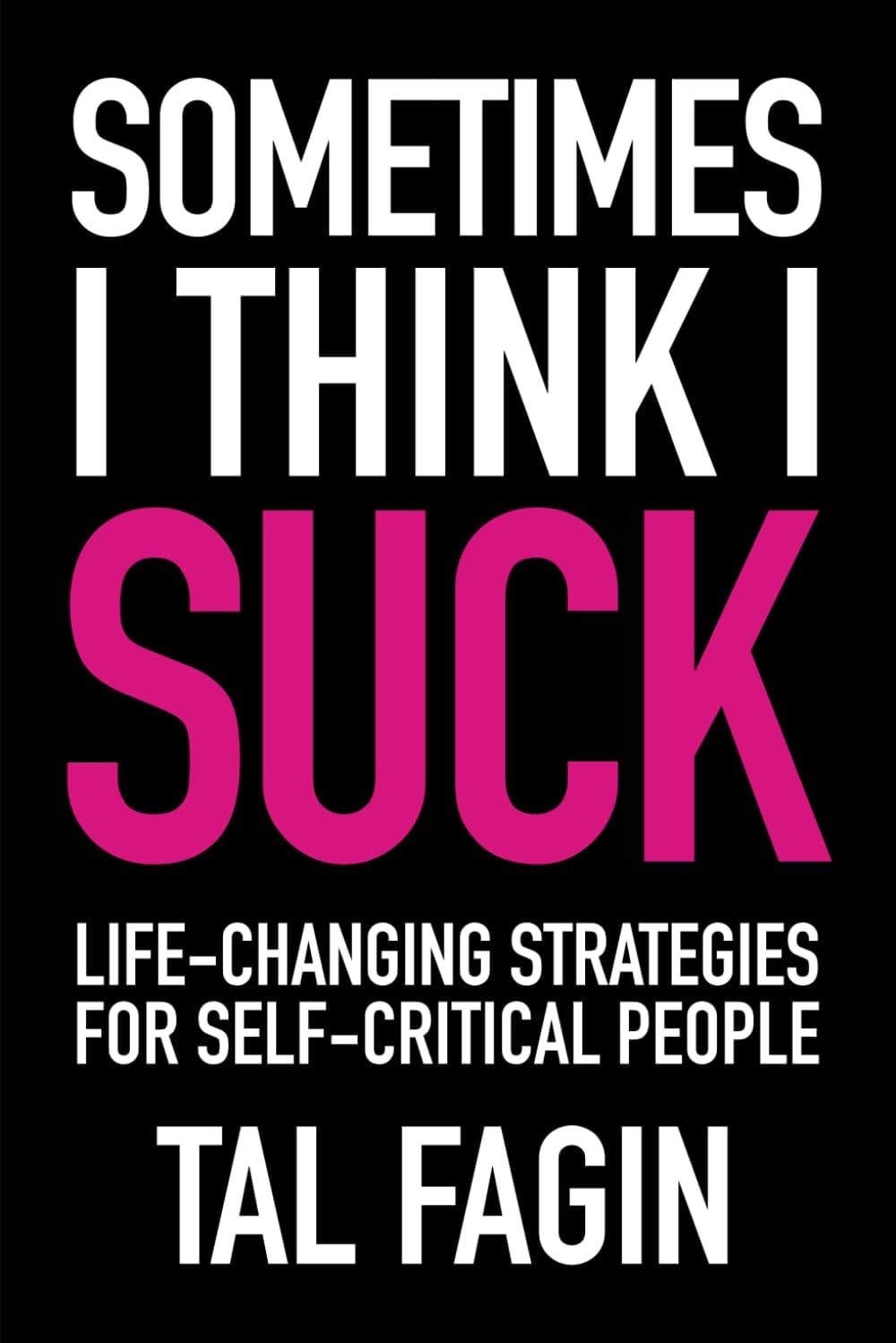Always Criticizing Yourself? Author Tal Fagin Has the Life-Changing Strategies to Help You Stop the Negative Self Talk
People can be incredibly hard on themselves. As a life coach specializing in the self-critical set, I hear it all the time: I’m not smart enough. I’m too disorganized. I can’t get anything right. Even the most successful among us quietly worry they’re not doing enough—or worse, that they are just not enough.
If that sounds familiar, allow me to introduce you to your inner critic—the voice of fear and uncertainty that beats you up, puts you down, and pushes you way too hard. For some, it’s a subtle background whir. For others, it’s a high-volume scream. Either way, here’s what I want you to know: You are not alone, and you can change. There is a kinder, better way to relate to yourself—one that’s also more empowering and productive.
I do this work with people—and myself—every day. When I look at my clients, I see brilliance, warmth, creativity, and care. I see talent, resilience, humor, generosity, and resourcefulness. But unfortunately, this is not how they view themselves.
Very few of us do.
I’ve been where they are. I’ve been where you are. And I’ve learned the joy and freedom that comes from taming that critical voice—and in doing so, how it brings me home to my most authentic self.
Here are five simple tools to help you begin:
1. Pause and Breathe.
Most of us operate on autopilot, especially when we’re under stress. But even a single deep breath—inhale for four counts, exhale slowly—can bring you back to the present moment and help reset your nervous system. When your inner critic flares up, don’t let it take control. Pause instead. Take a breath. Get curious. Consider playing POQR (pronounced “poker”), which stands for Pause, Observe, Question, Reflect. All you have to do is pause to interrupt the cycle, mindfully observe what’s happening in your body and mind, question the story you’re telling yourself, and reflect on how you wish to move forward.
2. Cross-examine the Witness.
We tend to take our inner critics at their word. But our minds like to lie to us. All. The. Time. Our brains evolved, first and foremost, to keep us safe—to avoid risks, hoard resources, and otherwise stay alive. Inner critics are part of that survival instinct, but their methods can be faulty and harmful. Next time your critic says, You’re such a mess, pause and ask: Is that true? Is that entirely true? Then, look for counterevidence. Poke holes in her story, creating some reasonable doubt. Name three things you’ve done well this week or three qualities you admire in yourself. Even small feats—like eating a healthy lunch or being kind to the barista—count. This kind of deliberate reframing gives you space. It expands your narrow, negative view and lets you see yourself more fully.
3. Befriend the Bully.
Your inner critic isn’t evil—it’s just scared. It evolved, as I’ve mentioned, to keep you safe. But her tactics are outdated. Try getting to know your critic. What are her “Greatest Hits”? When does she show up? What does she sound like? What behaviors does she trigger—perfectionism, procrastination, extreme ambition, people-pleasing? Write it down. Track the patterns. This awareness is essential. You can’t change what you don’t notice. And when the critic pipes up, instead of shutting her down, try responding with kindness: Thanks for your concern. I know you mean well, but I’ve got this.
4. Practice Self-Compassion.
Speaking of kindness, how about extending some toward yourself? Self-compassion isn’t self-pity. It’s not letting yourself off the hook, and it does not lead to complacence. By contrast, it fosters resilience and fuels positive action. When your critic attacks, try treating yourself the way you’d treat a beloved child or friend. You wouldn’t berate them for making a mistake—you’d offer support and encouragement. Try doing the same for yourself. When we summon self-compassion, we step out of our small, limited perspectives into a wider, kinder reality that puts us at ease. We feel less armored and more supported. From that place, it’s easier to face whatever needs facing and try again.
5. Meditate, please.
Mindfulness meditation is one of the most powerful tools I know for taming the inner critic. Why? Because it teaches us to sit with discomfort, observe our thoughts without judgment, and return—again and again—to the present moment. People often think they’re “bad” at meditating because their minds wander. But that’s the practice. Noticing the drift and coming back is the whole point. In meditation, you learn to separate from your thoughts. You realize you have thoughts, but you are not your thoughts. You don’t have to believe them or act on them. You can let them go. And the more you practice on the cushion, the more this carries over into daily life, so that, when the inner critic shows up, you’ll be better equipped to notice and disengage.
Bonus: Basic Self-Care.
Good self-care makes a huge difference. When you’re exhausted, hungry, or stressed, your inner critic thrives. Instead, prioritize rest, movement, nutrition, and connection. Even a short walk or a check in with a friend can shift your mood, quiet the noise, and lift your spirits. When you feel good, your inner critic feels calmer, too.
I’ve been where you are. In fact, I was there just now, editing this essay—worried it wasn’t quite right, wondering who I think I am to offer advice. My inner critic still speaks up. But she doesn’t run my personal show anymore. Now, I listen. I thank her for trying to protect me. And then I move forward, guided by a wiser, kinder, more confident voice inside. Which is exactly what I want for you. By quieting your critic and meeting yourself with curiosity and care, you come home—to presence, to peace, to your best self.
Tal Fagin is a certified life coach helping high-achieving individuals break free from self-doubt and perfectionism. She is also the author of the new book Sometime I Think I Suck: Life-Changing Strategies for Self-Critical People. Learn more at talfagincoaching.com.
Please note that we may receive affiliate commissions from the sales of linked products.




